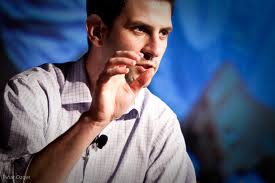 Good morning! Thanks for reading, and stay tuned; we’ve got some great stuff coming, including more with Jon Callaghan of True Ventures and a deep dive into the giant that is New Enterprise Associates.
Good morning! Thanks for reading, and stay tuned; we’ve got some great stuff coming, including more with Jon Callaghan of True Ventures and a deep dive into the giant that is New Enterprise Associates.
—–
Top News in the A.M.
Venture Heavyweights Sit Back as Deal Sizes Soar
It’s been a banner week for a number of Internet companies.
Last Wednesday, social network Pinterest acknowledged closing on a $225 million round that valued the company at $3.8 billion. Shortly thereafter, AllThingsD reported that Snapchat, the messaging app, is now weighing a $200 million investment round that would value the company at $3.5 billion. And just yesterday, NextDoor, a social network for neighbors, raised $60 million in fresh capital.
But the reality is that some of today’s biggest venture heavyweights have pulled back dramatically on late-stage deals.
Two weeks ago, during a visit to Andreessen Horowitz, Marc Andreessen told me his firm has “done almost no growth investments in the last year and a half.”
Yesterday, Ravi Viswanathan, who co-heads New Enterprise Associates’ Technology Venture Growth Equity effort, told me much the same. “If you chart our growth equity investing over the last few years, it’s been very lumpy,” said Viswanathan. “Last year, I think we did four or five growth deals. This year, I don’t think we did any.”
That’s saying something for a firm that is right now investing a $2.6 billion fund that it raised just a year ago.
Andreessen attributes his firm’s reluctance to chase big deals to an influx of “hot money.” The partnership is “way behind on growth [as an allocation of our third fund],” Andreessen told me, “and that’s after being way ahead on growth in 2010 and 2011, because so many investors have come in crossed over into late stage and a lot of hedge funds have crossed over, which is traditionally a sign of hot times, hot money.” He added, “What we’re trying to do is be patient. We have plenty of firepower. We’re just going to let the hot money do the high valuation things while it’s in the market. We’ll effectively sell into that.”
That’s not to say later-stage deals don’t have their champions right now. At this week’s TechCrunch Disrupt conference, venture capitalist Bill Gurley of Benchmark told the outlet that “a global reality is that some of these companies have systems, they have networks in them, that cause early leads to always play out with really huge platforms.” People “laugh or write silly articles about the notion of a pre-revenue company having a very high valuation,” added Gurley. But “if you talk to some of the smartest investors on Wall Street, or go talk to guys like Lee Fixel or Scott Shleifer at Tiger, they’re looking for these types of things. They’re looking for things that can become really, really big.”
Still, Viswanathan’s concerns sound very similar to Andreessen’s when I ask him why NEA has pulled back so markedly from later stage investments.
“It’s an amazing tech IPO market, and that drives growth,” Viswanathan observed. “But I’d say the growth deals we saw last year [were] elite companies getting high valuations. There are still great opportunities out there. But right now, it feels like there are high valuations even for the lesser-quality companies.”
New Fundings
9Lenses, a three-year-old, Sterling, Va.-based company that makes cloud-based survey and analytics software for enterprises, has received $1.1 million in Series A funding to add to the $3 million the company closed on earlier this fall. The funding comes from Icon Venture Partners. 9Lenses earlier investors were Kinetic Ventures and CEB.
Altia Systems, a two-year-old, Cupertino, Calif.-based company that makes video and Web collaboration software, has raised new funding from Naya Ventures, a two-year-old venture fund specializing in mobile and cloud companies in the U.S. and India. Altia isn’t breaking out the amount of Naya’s investment but says it has raised $6.7 million to date.
Brighter, a two-year-old, Santa Monica, Calif.-based company whose online marketplace is used to connect people with new dentists, has raised $15 million in Series C funding led by Tenaya Capital. Previous investors Mayfield Fund and Benchmark also participated. The company has raised $28 million to date.
Calithera Biosciences, a 3.5-year-old, South San Francisco, Calif.-based biotech company that develops cancer therapies, has closed $35 million in Series D financing. Adage Capital Partners led the round, with participation from Longwood Fund, Morgenthaler Ventures, Advanced Technology Ventures and Delphi Ventures. The company has raised roughly $90 million to date.
IfOnly, a 22-month-old, San Francisco-based startup that raises money for charity by enlisting experts in cooking, sports and entertainment to offer “life-enriching experiences,” has raised $12 million in funding. The company had earlier raised $3 million. Its backers include New Enterprise Associates, Khosla Ventures, Founders Fund, American Express Ventures, and Allen & Co., along with numerous high-profile operators. Among them are Salesforce.com CEO Marc Benioff, Nextdoor founder Nirav Tolia, Zynga founder Mark Pincus, and Yahoo CEO Marissa Mayer.
Jibe, a 3.5-year-old, New York-based company that makes cloud-based recruiting software, has secured a $4 million credit facility from Silicon Valley Bank just eight months after raising a $10 million, Series B round that was led by Longworth Venture Partners and included Polaris Partners, Lerer Ventures, DFJ Gotham, and Thrive Capital. The company has raised around $17 million in equity altogether.
Layer, a seven-month-old, San Francisco-based company that promises to help developers build messaging, voice, and video into their apps in minutes, has raised $6 million from a syndicate of investors that includes Greycroft Partners, Data Collective, CrunchFund, e.ventures, FUEL Capital, and SV Angel. The young company had earlier raised $1.5 million from many of the same investors.
Pixlee, an 18-month-old San Francisco-based company that helps brands create user-generated advertising campaigns (using photos and videos produced by customers) has raised $1.5 million in seed funding. The company’s backers include Andreessen Horowitz, XSeed Capital, Rothenberg Ventures, angel investor Ariel Polar and Mark Gorenberg, a longtime managing director at the venture firm Hummer Winblad.
Qliance Medical, a seven-year-old, Seattle-based company that operates health clinics, has raised $5.5 million, according to an SEC filing that was flagged by Geekwire. Qliance already counts Jeff Bezos, Michael Dell, comedian Drew Carey, Second Avenue Partners, New Atlantic Ventures, and Clear Fir Partners among its investors. This newest round of funding appears to bring Qliance’s total funding to date to roughly $32 million.
Rockabox, a five-year-old, London-based startup that offers targeted video distribution and engagement software to brands, has raised $4.5 million in Series A funding led by Notion Capital. Existing investors Frog Capital and fourteen17 also participated in the round.
Securus Medical Group, a two-year-old, Cleveland, Oh.-based medical device company, has raised $6.5 million in Series B financing. New investor 3X5 Special Opportunity Fund led the round with participation from RiverVest Venture Partners and the University of Michigan Investment in New Technology Startups program. Securus is developing clinical tools to monitor core body temperature within body cavities.
Trustev, a year-old, Cork, Ireland-based company focused on online identity verification, has raised $3 million in seed funding from Greycroft Partners, Mangrove Capital Partners, ACT Venture Capital, Enterprise Ireland, and Wayra.
—–
New Funds
Akkadian Ventures, a San Francisco-based firm that purchases stock in private companies from entrepreneurs, early employees and angel investors, appears to be raising more capital, judging by two new SEC filings. Akkadian Entrepreneurs III, LP doesn’t list a target but officially began fundraising two weeks ago and has closed on $3.12 million, according to its Form D. A separate filing, for Akkadian Holdings III, LP, shows that Akkadian has raised a separate $2.75 million pool. Last year, the firm raised a $22 million fund.
The life-sciences focused firm venBio — a private equity and venture capital outfit that invests across early- to late-stage companies, as well as in spin-outs, PIPEs, and mezzanine deals — appears to be raising a fresh $60 million, according to an SEC filing. The firm, which has offices in San Francisco and New York, began fundraising for its current vehicle in 2010, according to its Form D. It closed on $177 million last year; its latest filing lists its new target as $237 million.
—–
IPOs
How much do investors love ad tech? We might learn more today when Criteo, the French ad retargeting company begins trading its American Depositary Shares (ADS) on the Nasdaq under the “CRTO” ticker. Early indications are that it will do just fine. On Monday, Criteo sold 8.08 million ADS, up from a previously planned 7.2 million shares; it also raised its expected price range to $27 and $29 per share from its previous $23 to $26 per share range.
—–
Exits
Perka, a 2.5-year-old, Portland, Ore.-based creator of mobile loyalty programs for small- and mid-size businesses, has been acquired by the e-commerce and payment processing company First Data Corp. Terms of the deal were not disclosed, but Perka will continue to operate autonomously for now. TechCrunch has a good overview of what First Data is aiming to do with Perka, along with another recent acquisition, the mobile payments startup Clover. First Data is itself owned by the private equity firm KKR.
Soluto, a five-year-old Tel Aviv-based company whose software helps manage PCs and other devices remotely, has been acquired for $100 million by Asurion Corporation, reports Globes. Asurion, based in Nashville, Tenn., sells insurance for phone and other electronic devices. Soluto’s founders own at least 20 percent of the company, reports Globes. Other investors, who’d given the company $18 million over the years, include Index Ventures, Bessemer Venture Partners, Giza Venture Capital, Proxima Ventures, and CrunchFund.
—–
Data
Pitchbook has released its fourth-quarter venture capital valuations and trends report. Among the report’s most interesting findings: Median pre-money valuations are at a ten-year high. Valuations for seed and Series D or later rounds shot up 100 percent and 116 percent, respectively, between 2009 and the third quarter of this year. And the number of venture deals that included liquidation participation (both capped and uncapped) has fallen from 71 percent in 2008 to less than 35 percent over the first three quarters of this year. You can download the full report here.
—–
Happenings
It’s not too late to descend on the three-day ARM TechCon 2013 conference at the Santa Clara Convention Center in the Bay Area, where 5,000 hardware and software engineers will ostensibly be milling around later today. Here’s more information.
The second day of VentureBeat‘s GamesBeat conference gets underway today in Redwood City, south of San Francisco. You can click here for more details.
RSA is also into the second day of its Europe 2013 conference in Amsterdam. Here are the details.
And kicking off today in Dublin, Ireland: Web Summit, a two-day conference that features no end of big industry names, including Nest founder and CEO Tony Fadell, Box cofounder and CEO Aaron Levie, and Kevin Rose of Google Ventures. You can learn much more about what’s happening and when here.
—–
People
Steve Jobs‘s childhood home on Crist Drive in Los Altos — a one-story ranch where Jobs built the first Apple computers, aided by Apple cofounder Steve Wozniak and Jobs’s younger sister Patricia — has been added to a list of historic Los Altos properties, reports the SJ Merc. You can read more about it here.
Arthur Johnson is joining the venture firm Andreessen Horowitz as an operating partner focused on corporate development, reports Fortune’s Dan Primack. Johnson was most recently the COO of Cisco’s WebEx group. Before Cisco, Johnson held biz dev positions at Rocket Lawyer and Intuit.
Chamath Palihapitiya, founder of the investment firm The Social+Capital Partnership, owns the equivalent of $5 million in bitcoin. He wants to triple his holdings, too, reports TechCrunch.
Kanye West cozies up to yet another tech entrepreneur: Tony Hsieh of Zappos and Las Vegas’s Downtown Project. (How long before West launches his own venture capital fund?)
Tom Wheeler, a longtime wireless industry lobbyist who in 2005 became a managing director at the venture capital firm Core Capital in Washington, D.C., has a new job. Yesterday, he was confirmed to be the new chairman of the Federal Communications Commission.
—–
Job Listings
Facebook is looking for a business development manager to join the company’s Menlo Park, Calif. headquarters. The ideal candidate is “obsessed with technology, social media and business strategy” and has at least six years of related business development experience at an Internet or other tech company. You can apply here.
—–
Essential Reads
Twitter pulls a Facebook, adding photos and videos to users’ Twitter streams, largely in order to attract and accommodate more advertising.
—–
Detours
Strategies for getting kids to fluently speak more than one language.
The many faces of Lou Reed.
Seventy-five years ago today, one million American thought aliens had invaded earth.
Would you like to join my start-down?
—–
Retail Therapy
Balls of steel. Get some.
Vinyl Me, Please. It’s a new record club founded by DJs who will send you a new release or vintage vinyl album; a limited edition piece of art inspired by the album; a weekly, curated playlist tailored expressly to your taste; and a cocktail pairing for your listening pleasure — all for $23 a month. Sign us up! (H/T: Huckleberry.)
Introducing Bongo, a Bluetooth speaker made of bamboo and hemp cloth. Ideal for lovers of retro design and actor Woody Harrelson.
Please feel free to send us any and all story suggestions (anonymous or otherwise) by clicking here. If you’re interested in advertising in our email newsletter, please click here. To sign up for the newsletter, visit strictlyvc.com.



























